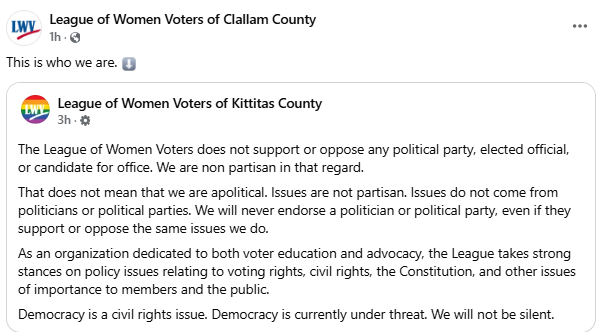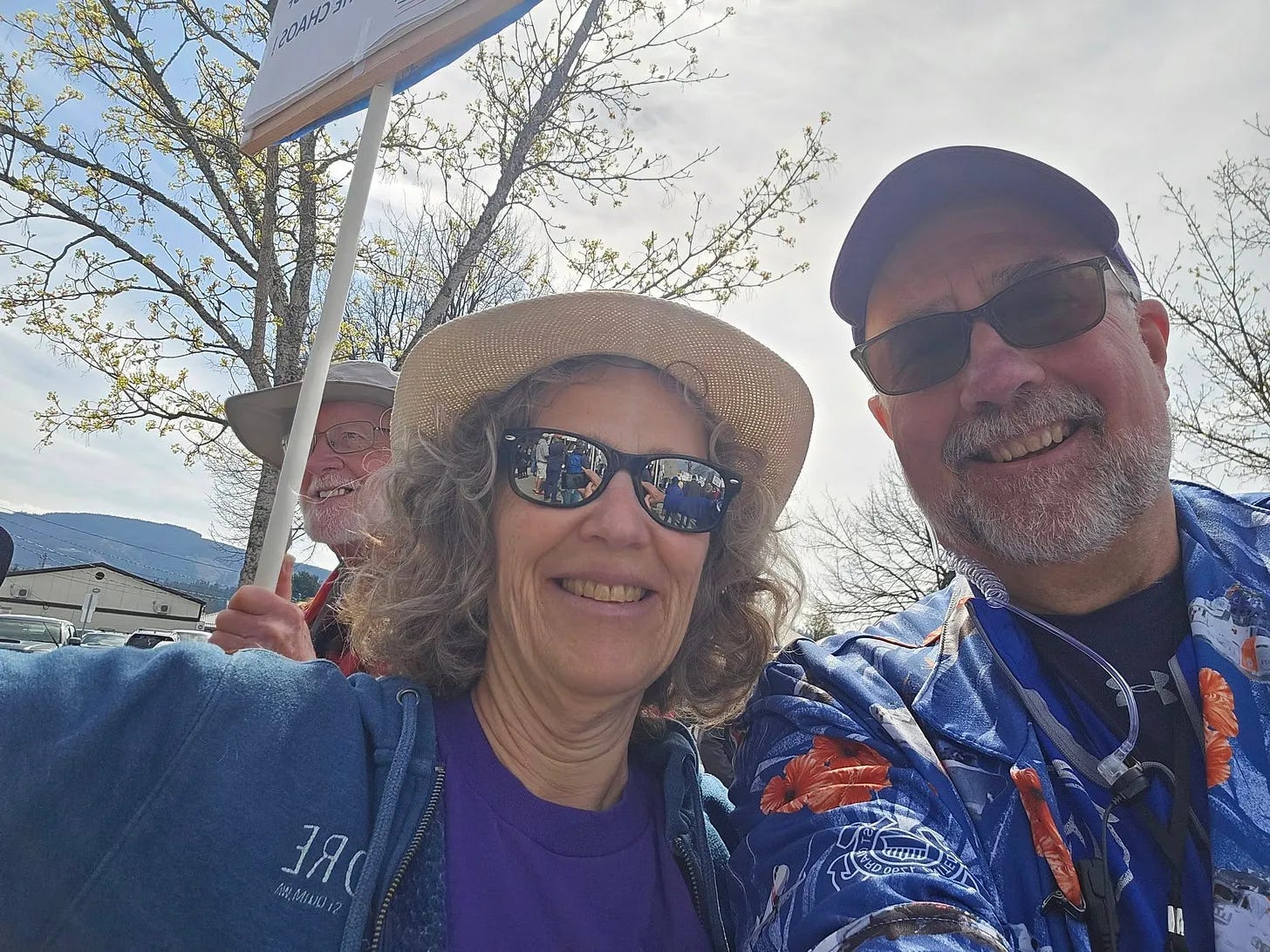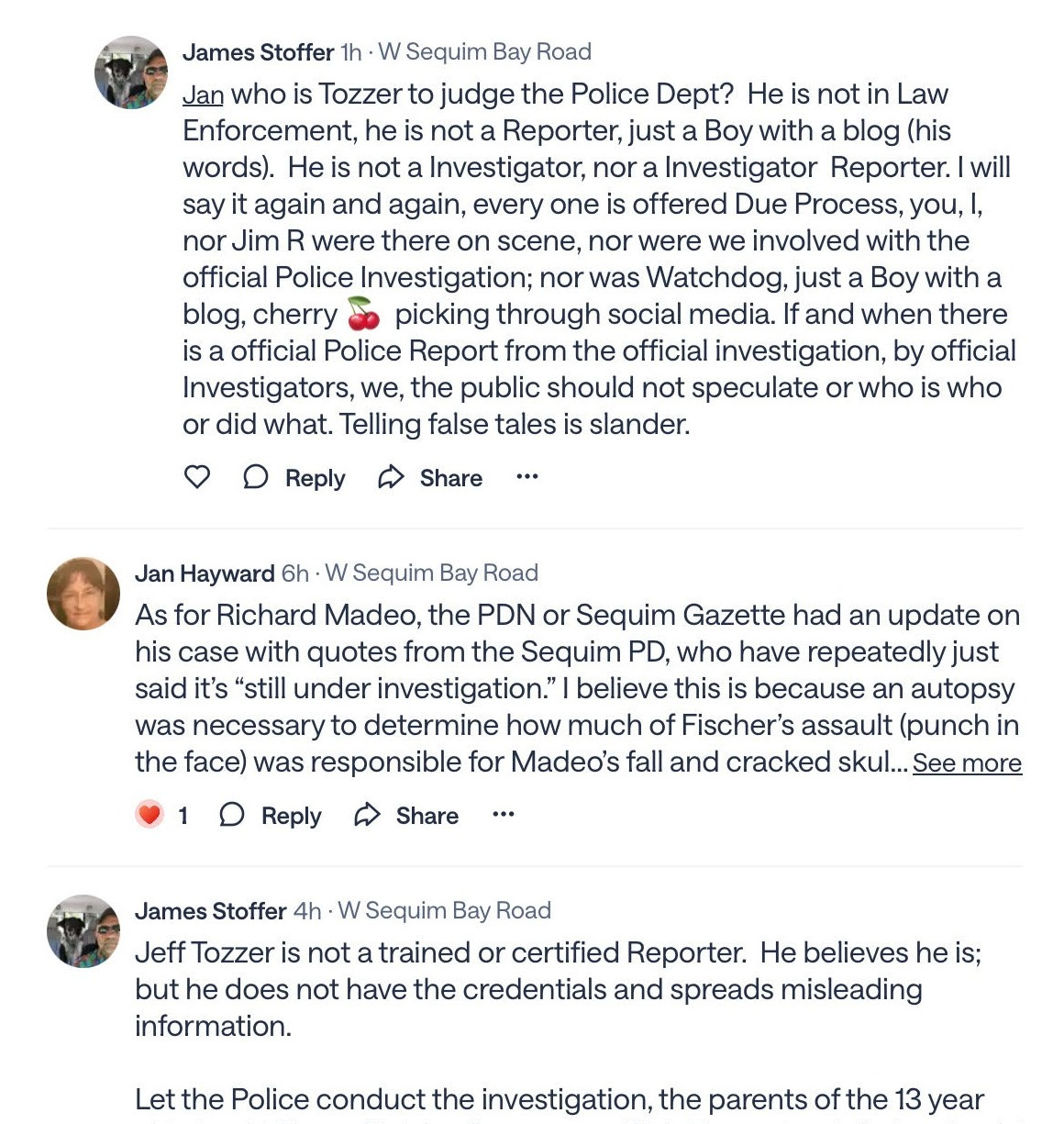The Charter Review Commission was supposed to represent the people—now it’s lecturing them instead. From dismissing public comments as partisan noise to rewriting the rules to silence dissent, a small group of commissioners has taken control of the process. If you think your voice matters, think again—because unless you’re applauding their agenda, they’re not listening. This is how government stops being accountable and starts deciding it knows better than you.
Clallam County’s Charter Review Commission was supposed to be a citizen-led body—15 elected commissioners representing the people of three districts, tasked with reviewing the county’s foundational document and bringing forward thoughtful amendments. But if the past six months are any indication, the Commission’s leadership sees public input not as a foundation of democracy—but as a problem to be managed.
That message has been coming through loud and clear, both in words and actions.
A dismissive attitude toward the public
Commissioner Paul Pickett, a frequent contributor to Clallam Democrats Rising, recently lamented that most of the public comments submitted to the CRC echoed what he called “Republican talking points,” attributing them to a “small segment” of the community. His comments came in response to criticism of his proposal to create a new Water Steward department within county government—an idea that would likely require new taxes or funding reallocation at a time when many residents are more concerned about public safety.
Instead of engaging with the substance of the public’s concern, Pickett’s takeaway was that the public is too partisan or misinformed to be taken seriously. That sentiment—intentional or not—has surfaced repeatedly.
“We’ll decide what matters”
When the Charter Review Commission sent out a public survey, it was initially promoted as an important way to hear from the community. But when the results didn’t line up with certain commissioners’ priorities, the data was quickly minimized. The results were called non-binding, the comments were not published, and the response rate was criticized as being a small fraction of registered voters.
The message? Public input is welcome—until it contradicts the plan.
At a May 27 meeting, Commissioner Chris Noble stated:
“I would like to have the chair remind the public commenters that their comments are to help the commission do its work, and comments about things outside the commission’s work are not particularly helpful.”
That’s a troubling standard. Who decides what qualifies as “helpful”? Constructive criticism is how good policy gets better—but here, it seems disagreement is something to be filtered out.
The role of the Chair: education or control?
CRC Chair Susan Fisch has repeatedly framed the Commission’s role as one of educating the public. In an email to fellow commissioners, she expressed concern over citizens submitting identical amendment requests related to the county’s role in the federal trust land process, suggesting these requests reflected “disinformation.”
“If you know these citizens, this would be a great opportunity to educate them,” she wrote.
But this was not disinformation. These were requests that align with basic accountability—that the Board of Commissioners respond to federal agencies when asked to do so. Ironically, this is a proposal that appears to be moving forward within the Commission. Yet even here, Fisch saw a need to reassert control over the public narrative.
This same chairwoman unilaterally assigned the design of the public survey to her ally Commissioner Jim Stoffer. And when the results didn’t favor their direction, they were brushed aside. She also serves as secretary of the League of Women Voters, a group that champions civic participation and government transparency. The inconsistency is hard to ignore.
Shifting the power structure
Though all 15 Charter Review Commissioners were elected to have equal standing, it has become increasingly clear that power within the CRC has consolidated around two people: Fisch and Stoffer. Together, they’ve modified how meetings are run—limiting commissioner comments to two minutes, even when introducing amendments, and shutting down debate through procedural shortcuts like “calling the question” without the required second or 2/3 majority vote.
Fisch is a retired judge. Stoffer served on the CRC five years ago and was elected twice to the Sequim School Board. Don’t they know the basics of Robert’s Rules of Order?
At the very first CRC town hall, the public was told that direct engagement with commissioners wasn’t allowed. That event ended an hour early when it became clear the public expected a conversation, not a lecture. Stoffer later told the press that it would have been illegal for commissioners to answer questions—an assertion that the County’s own civil attorney later confirmed was not true.
After that, attendance at CRC town halls plummeted.

Public accountability—only for some
When challenged, Stoffer has been quick to deflect criticism by questioning the qualifications of those who speak up. In one online post, he dismissed a local blogger critical of the CRC by saying, “He is not in Law Enforcement, he is not a Reporter, just a Boy with a blog.”
It raises the question: since when do citizens need to carry a badge or a press pass to question their government?
A pattern of control
From restricting commissioner speech, to limiting public feedback, to sidelining amendments they don’t like—this Commission has drifted far from its original purpose.
At the May 27 meeting, Stoffer told the public gallery:
“We’re doing work in front of you. I ask for your respect and understanding of that because that’s what we’re doing, we’re working in front of you.”
He followed that with:
“Give me the opportunity for me to fulfill my oath that I took with the county.”
No one doubts that Charter Review Commissioners are working. The issue is that some appear to believe the public’s role is simply to observe—not to participate, question, or challenge. That’s not how representative government works. Commissioners are not here to educate the people into compliance—they’re here to listen, respond, and represent all of Clallam County.
The Charter Review Commission was never meant to operate as a filter for “acceptable” ideas. It’s supposed to be a reflection of the community’s values. If public input is inconvenient, that’s not a flaw in the process—it’s the very point of it.
The Charter Review Commission meets tonight, June 23, 5:30 PM at the courthouse in Port Angeles. Agenda and instructions to attend virtually or in person are here.
















